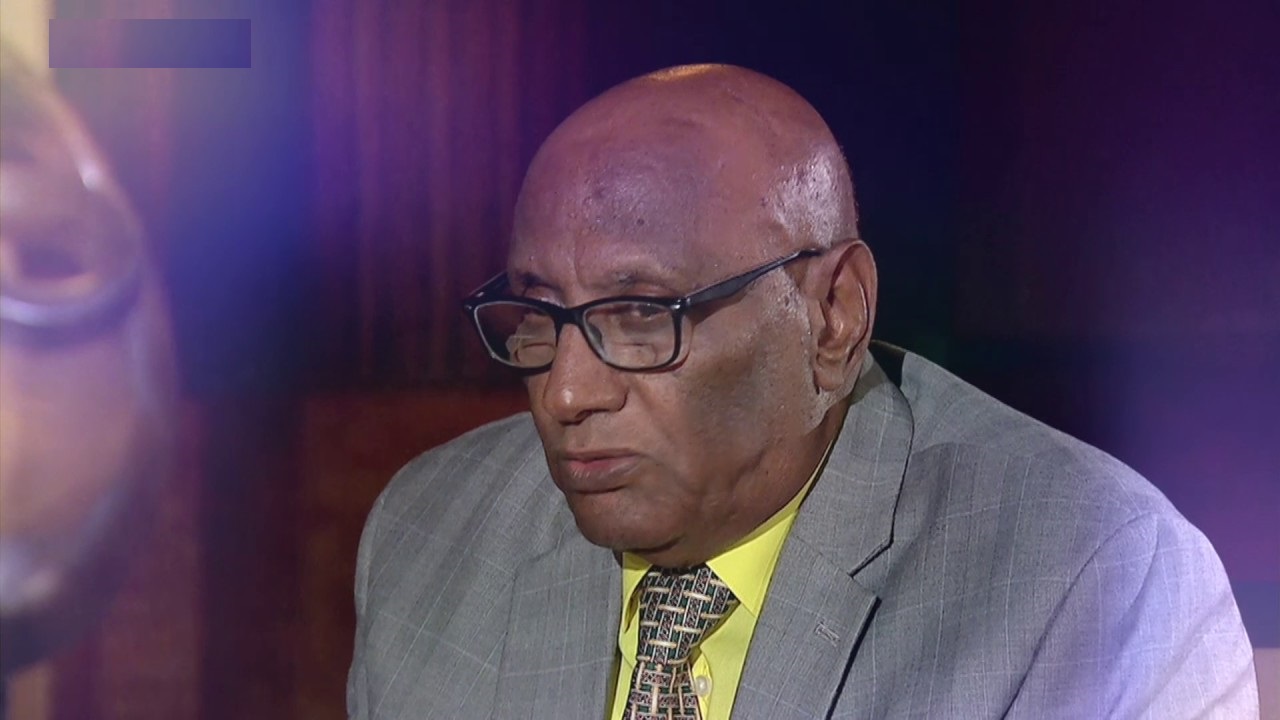
Dr. Abdullah Ali Ibrahim: Neither the African Union nor the Arab League can be relied upon
Interviewer: Youssef Hamad*
The ongoing and destructive war that erupted on April 15 between the Sudanese army and the Rapid Support Forces in Khartoum and some regions of Sudan has brought about a new reality, provoking deeper questions about the tragedy of modern Sudanese state and dissecting its chronic crises.
Below is an interview with Dr. Abdullah Ali Ibrahim, a renowned Sudanese thinker, historian, writer, and academic who has diverse interests in storytelling, theater, and journalism. He is a professor of African and Islamic history at the University of Missouri in the United States, where he joined the faculty in 1994. He has authored numerous books covering various fields of knowledge, including literature, criticism, history, and politics.
*To what extent can the African Union contribute to resolving the Sudanese problem, and can historical ties and similarities be relied upon?
Neither the African Union nor the Arab League can be relied upon to solve our issue. They have not shown any inclination towards that. Perhaps we have not presented our problem to them outside of the war of the generals, for them to understand our historical effort in establishing a modern civil democratic state. Neither of these organizations has an intellectual establishment that aligns with our experience and enriches their diplomacy with a spark from our vigilance over these meanings, not today nor in the past, but since we gained independence. And we are vigilant for its future. If they were to approach the matter objectively, they would find that we are the solution, not the problem. Unfortunately, many of us believe that we are the problem, and thats a pity from our elites.
Based on your analysis of the Rapid Support Forces as a rust for the countryside, what do you expect to be the fate or future of this militia?
It should dissolve, unless the ongoing war dissolves it. It came to us tired and will pass, just like in the famous game.
You once mentioned that Sudanese people are sons of covenants, and you may have been referring to the historical covenant and alliance between the Funj and Abdallab. In your estimation, what is the new covenant that can save Sudan?
Unfortunately, some ignorant people added the word abrogated to the phrase. I used that phrase because, like many other countries, we need to renegotiate the state inherited from colonialism since our independence in 1956, which has experienced wars and peace, leading to the right to self-determination for one-third of the country and then secession after struggles. Tell this to the Eritreans who didnt sit with Ethiopia until they entered Asmara victoriously. Or tell it to the Tigrayans until they came to negotiate with Abiy Ahmed while victorious. Tell it to the English-speaking Cameroonians who resisted the federal government in the French-speaking part that was colonized by France. Tell it to the Kurds in Turkey or Iran. The Kurds in Iraq got what they got with the support of America. They will be surprised.
How do you reconcile your scathing criticism of modernity on one hand, and the optimism you recently expressed in an institution like the army on the other hand? In other words, does the army stop the production of a small bourgeoisie?
I didnt frighten people away from modernity. I said those who fear modernity in its conditions, i.e., it is not the modernity that occurred in the West and was completed, and we have no choice but to apply it through educated, assimilated people who despise their primitive culture; they are messengers for European missionaries. They sought to impose modernity on us because of their bad opinion of their own people, trying to change themselves from the platform of their own culture. I fear that some may think that this call for creativity in modernity is a renunciation of it. Even in our Marxism, as a modernist creed, we agreed to apply it creatively to the Sudanese reality. We tried, and of course, society does not cease to produce its classes: the bourgeoisie, the petite bourgeoisie, the working class, the exploited working class, and the farmers with their known divisions: the poor, the lower-middle-class, the rich, and the agricultural laborers. We said that the officers belong to the petite bourgeoisie, not the soldiers. All of this will remain as facts of the modern nation-state with its national army that monopolizes weapons and physical violence by its petite bourgeois officers, as long as it abstains from misrule through coups.
* Sudanese journalist and the editor-in-chief of Al-Hadath newspaper.
(Note: The translation provided is a direct translation of the given text. The context and nuances of the original Arabic text may be better understood by a fluent Arabic speaker.)

